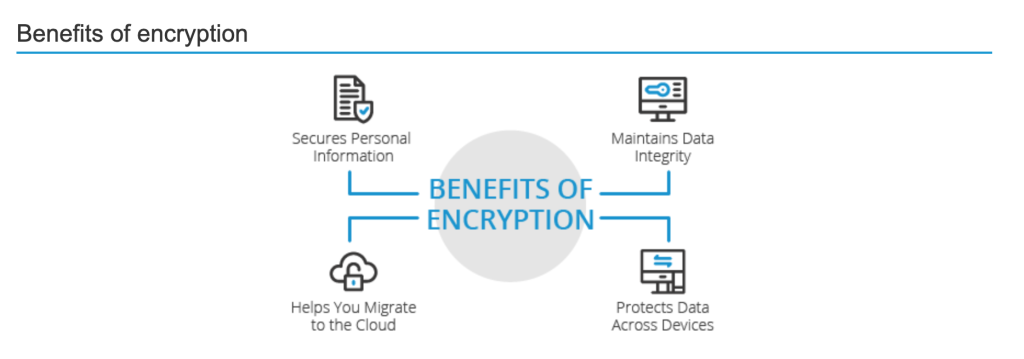With live chat gaining favor as one of consumer’s favorite communication channels, it’s important to maintain customer trust. When it comes to handling sensitive data like Protected Health Information (PHI), healthcare organizations face challenges in maintaining HIPAA compliance. In this article, we explore the nuances of HIPAA and its impact on live chat. We delve into best practices for securing PHI in live chat sessions. We offer tips on maintaining the balance between ensuring security and convenience for both healthcare providers and patients. And we address the importance of protocols for monitoring and auditing live chat sessions in order to maintain HIPAA compliance. Let’s dive in!
Understanding HIPAA and How It Affects Live Chat
When it comes to live chat, PHI can be exchanged during conversations between healthcare professionals and patients. This introduces potential risks if proper security measures are not in place. Unauthorized access, accidental disclosure, and inadequate encryption are just a few examples of the risks associated with live chat as a communication channel for healthcare organizations.
The Health Insurance Portability and Accountability Act (HIPAA) was enacted in 1996 with the aim of safeguarding the privacy and security of Protected Health Information (PHI). HIPAA sets the standard for the protection of individuals’ health information and applies to healthcare providers, health plans, and healthcare clearinghouses that conduct transactions electronically.
Communication Channel HIPAA Compliance
One of the key challenges in maintaining HIPAA compliance with live chat is ensuring that the platform used for communication is secure and HIPAA-compliant. Healthcare organizations need to carefully select a live chat solution that meets the stringent security requirements set forth by HIPAA. This includes features such as end-to-end encryption, access controls, and audit trails to track and monitor PHI access and usage.
Learn more in our EBook: Live Chat and HIPAA Compliance
Training and Education
Healthcare professionals and staff members who engage in live chat conversations must receive proper training on HIPAA regulations and best practices for handling PHI. This includes understanding the importance of obtaining patient consent, securely transmitting PHI, and maintaining confidentiality during live chat interactions.
Resources available from government and other agencies:
The U.S. Department of Health and Human Services provides the opportunity to read the HIPAA documents as well as to review various sources that overview the requirements and their compliance processes.
Edd App offers a comprehensive list of free HIPAA resources to assist with understanding the law and implementing safe information processes through daily operations.
Policies and procedures
In addition to technical and training considerations, healthcare organizations must also implement policies and procedures that govern the use of live chat for PHI exchange. These policies should outline guidelines for acceptable use, data retention, and incident response in the event of a security breach or unauthorized access to PHI.
Furthermore, regular audits and assessments should be conducted to ensure ongoing compliance with HIPAA regulations. This includes reviewing access logs, conducting penetration testing, and evaluating the effectiveness of security controls in place for live chat. Knowing how patient information is being handled can help continuously improve safety measures.
Best Practices for Securing PHI in Live Chat
Securing Protected Health Information (PHI) in live chat sessions is of utmost importance in the healthcare industry. It requires a proactive approach that encompasses both technological solutions and staff education to ensure the privacy and confidentiality of patient data.
1. Encryption
One essential component in securing sensitive information transmitted via live chat is encryption. Implementing end-to-end encryption ensures that messages are encoded and can only be decrypted by the intended recipient. This robust encryption mechanism provides an additional layer of security, making it extremely difficult for unauthorized individuals to access or intercept the PHI being transmitted.

- Secures Personal Information. Encryption makes it possible to securely transmit personal or corporate information over the internet. For example, phone numbers and account details can be shared to make payments.
- Maintains Data Integrity. Encrypted data is harder to hack and harder to alter, meaning that attempts to alter the data can be identified quickly and efficiently.
- Helps You Migrate to the Cloud. Many businesses are rightly concerned about moving their data to the cloud. Encryption secures your data when it’s in transit (during the migration) and at rest (whilst stored in the cloud), giving you peace of mind.
- Protects Data Across Devices. Whether you use a laptop, smartphone, or tablet, encryption protects your data. The cyphers are written for any platform meaning encrypted data is not platform-dependent and can be used across devices.
2. Transmission protocols
Transmission protocols, such as HTTPS, protect data in transit. HTTPS ensures that the communication between the user’s browser and the chat server is encrypted, preventing any potential eavesdropping or tampering of the data. By implementing HTTPS, healthcare organizations can guarantee the integrity and confidentiality of PHI during live chat sessions.
It is crucial to educate healthcare professionals on the proper handling of PHI in live chat sessions. This includes training staff about the importance of never sharing patient information outside of secure channels. Healthcare professionals should be aware of the potential risks associated with discussing PHI through unsecured means, such as email or unencrypted chat platforms.
Implementing multi-factor authentication adds an extra layer of security by requiring users to provide multiple forms of identification, such as a password and a unique code sent to their mobile device. Regularly updating passwords is also an essential step in preventing unauthorized access and potential breaches.
3. Storage and Retention
Storage and retention of live chat conversations remain a priority. Limiting the retention period of live chat logs reduces the potential risk associated with storing PHI. By securely and promptly disposing of unnecessary chat logs, organizations minimize exposure in the event of a security incident. Implementing proper data retention policies ensures that PHI is only stored for the necessary duration and is securely deleted when no longer needed.
Overall, securing PHI in live chat sessions requires a multi-faceted approach that combines robust technological solutions, staff education, and strict data retention policies. By implementing these best practices, healthcare organizations can safeguard patient information and maintain the trust and confidence of their patients.
Balancing Security and Convenience in Live Chat
While ensuring the security of Protected Health Information (PHI) is paramount, it is also essential to provide a convenient and user-friendly experience for patients. Striking a balance between security and convenience is key to successfully implementing live chat in healthcare settings.
One way to achieve this balance is by leveraging secure messaging platforms specifically designed for healthcare organizations. These platforms offer enhanced security features while still maintaining ease of use for patients. For example, they may incorporate end-to-end encryption to ensure that patient data remains confidential and protected throughout the conversation. By providing a seamless and intuitive user interface, patients are more likely to engage in secure conversations, ultimately improving the overall patient experience.
Implementing privacy screens or ensuring private conversation areas in waiting rooms can enhance patient privacy during live chat interactions. This physical measure helps prevent unauthorized individuals from viewing sensitive information displayed on the screen. It creates a sense of confidentiality and reassurance for patients, allowing them to freely discuss their health concerns without fear of privacy breaches.
Furthermore, healthcare organizations can integrate multi-factor authentication (MFA) into their live chat systems to add an extra layer of security. MFA requires users to provide multiple forms of identification, such as a password and a unique verification code sent to their mobile device, before accessing the chat interface. This additional step helps prevent unauthorized access to patient information, ensuring that only authorized individuals can participate in the conversation.
Offer support resources. Healthcare providers should keep help guides or FAQs within the live chat interface. These resources can assist patients in navigating the platform, understanding the security measures in place, and troubleshooting any technical issues they may encounter. By providing comprehensive support, healthcare organizations can alleviate concerns and enhance the overall convenience of the live chat experience.
Protocols for Monitoring and Auditing Live Chat Sessions
Maintaining HIPAA compliance with live chat necessitates the establishment of effective monitoring and auditing protocols. Regularly monitoring live chat sessions allows healthcare organizations to identify any potential security breaches or unauthorized access in real-time. By detecting and addressing issues promptly, organizations can mitigate risks and protect patient privacy and data.
Audits and Monitoring
Implementing regular audits ensures ongoing compliance with HIPAA regulations. Audits can include reviewing chat logs, inspecting encryption protocols, and evaluating employee compliance with security procedures. These audits should be conducted periodically and documented to demonstrate compliance to regulatory bodies and facilitate necessary improvements.
When it comes to monitoring live chat sessions, healthcare organizations employ various techniques and tools to ensure the security and privacy of patient information. One common approach is the use of real-time monitoring software that captures and analyzes chat conversations as they happen. This software can detect any suspicious activity, such as the sharing of sensitive information or unauthorized access attempts, and immediately alert the appropriate personnel.
Security Breach Prevention
In addition to real-time monitoring, organizations also implement proactive measures to prevent security breaches. For instance, they may employ advanced encryption protocols to protect the confidentiality of chat conversations. These protocols ensure that any data transmitted through the chat platform is securely encrypted, making it extremely difficult for unauthorized individuals to intercept or decipher the information.
Regular audits play a crucial role in maintaining HIPAA compliance and identifying potential vulnerabilities in the live chat system. During audits, healthcare organizations thoroughly review chat logs to ensure that all conversations adhere to the required privacy and security standards. This includes verifying that patient information is not being shared inappropriately and that employees are following the established security procedures.
Identifying Challenges to Maintaining HIPAA Compliance with Live Chat
Despite the best efforts of healthcare organizations, challenges may arise when it comes to maintaining HIPAA compliance with live chat. These challenges can manifest in various forms, such as technological limitations, human error, or lack of staff awareness.
Inadequate encryption measures, outdated software, or lack of integration with existing systems can create vulnerabilities. It is imperative for healthcare organizations to continually evaluate and update their technologies to address these limitations.
Human error can also pose a risk to HIPAA compliance with live chat. Healthcare professionals may inadvertently share PHI with unauthorized individuals or overlook security protocols during live chat interactions. Continuous staff training and robust internal communication are essential in mitigating this risk.
Lack of staff awareness and understanding of HIPAA regulations and best practices can impede compliance efforts. Ensuring that all employees, from healthcare professionals to administrators, are well-informed about HIPAA requirements and the importance of compliance is crucial for maintaining data privacy and security.
Live Chat and HIPAA Compliance
Live chat has the potential to revolutionize communication within healthcare organizations, providing convenient and efficient support to patients. However, ensuring HIPAA compliance with live chat is a complex task that requires careful planning, implementation of security measures, and continuous monitoring. By understanding the nuances of HIPAA and adopting best practices for securing PHI, healthcare organizations can strike a balance between providing convenient live chat services and maintaining data privacy and security.




